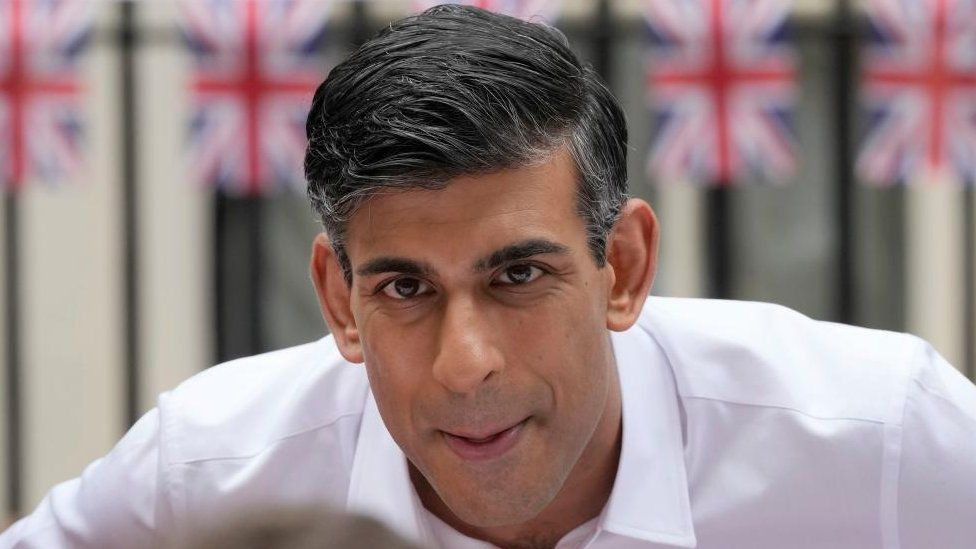
By Chris Mason
Political editor, BBC News
This is a classic example of a big, bold campaigning promise colliding with reality.
When Rishi Sunak was running to be Conservative leader last summer, he put out a video.
In it, inside what is called the ‘Brexit Delivery Department,’ vast bundles of paper representing EU laws thud down on a desk, and then a shredder is wheeled into the room.
And yes, you guessed it, those A4 pages encounter oblivion, one after another, as they are fed in.
“Keep Brexit safe,” the video concludes. “Vote Rishi Sunak today.”
Well, not enough people did, from his perspective, but he became prime minister in the end nonetheless – and now that video has collided with reality.
It turns out trying to feed too much stuff into a shredder, too quickly, runs the risk of not being able to read it all before it encounters the metal gnashers and is torn to smithereens.
The government ditching its plan to automatically cull thousands of EU-era laws at the end of this year has had the whiff of inevitability about it for some time.
For months, a myriad groups have raised concerns about the unintended consequences of laws disappearing by default.
But plenty of Tory MPs are grumpy about this, seeing it as a straight forward failure to deliver from the prime minister.
One told me many felt the government was acting in “bad faith” and they didn’t buy the argument that this was an impossible deadline.
Around 20 Conservative MPs went to see the chief whip Simon Hart to register their irritation.
Some Tory MPs went into Downing Street to do the same.
“There was an arms race in last summer’s leadership race, where Liz and Rishi found themselves out Brexiting each other. That’s where all this started,” one senior figure told me.
Ministers claim they are now being pragmatic.
They say they are still “taking back control”, as the Brexit campaign slogan put it, but are doing so at a more sensible pace.
Image source, PA Media
The move has angered Brexiteer Tory MPs like Jacob Rees-Mogg
“Kemi [Badenoch] approaches Brexit not as an end in itself, but as a means to an end,” one ally said of the business and trade secretary.
She happened to inherit all this because it had been a responsibility of Jacob Rees-Mogg, who was briefly Business Secretary under Liz Truss.
Mr Rees-Mogg is now the most outspoken public critic of Mrs Badenoch’s plan.
Ministers are promising to get rid of another 600 laws by the end of the year – we’ll find out which ones next week.
They claim around 1,500 others have either already gone, have been reformed, or that they soon will be.
But that still leaves a couple of thousand not yet looked at.
The old saying goes that politicians campaign in poetry and govern in prose.
In this instance, we’ve gone from a brash campaign video last August to a government ministerial statement nine months later.

